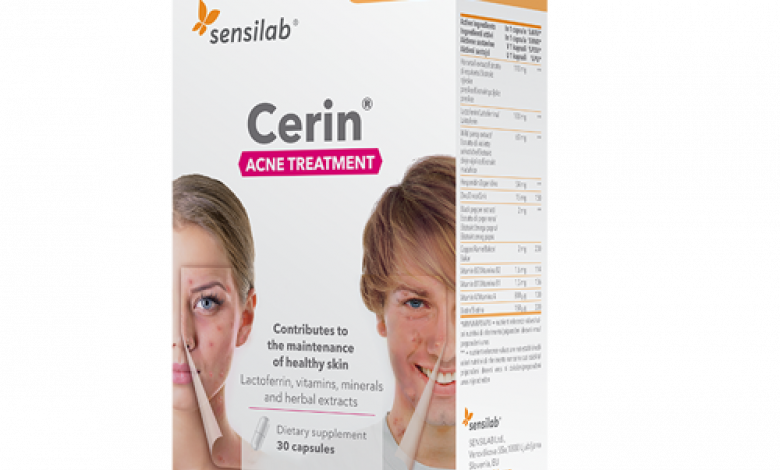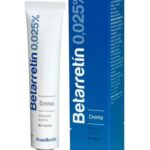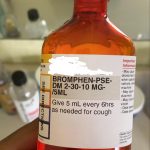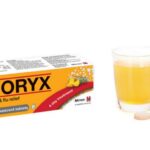Sensilab Cerin: Ingredients, Uses, Dosage, Side Effects,

Acne is a skin condition that occurs when your hair follicles become plugged with oil and dead skin cells. It causes whiteheads, blackheads, or pimples. Acne is most common among teenagers, in fact, research estimates that 9.4 percent of people worldwide have acne. In the United States, acne is the most common skin condition, according to the American Academy of Dermatology (AAD).
While acne doesn’t pose a serious risk to your overall health, it can still be painful, particularly if you have severe acne. Over time, acne might also cause scarring. There’s no denying that acne can contribute to emotional distress. Acne and acne scars on your face and other visible body locations can affect self-esteem and self-confidence, and they can even contribute to feelings of anxiety or depression. Though it affects people of all ages. Effective acne treatments are available, but acne can be persistent.
What is Sensilab Cerin?
Sensilab Cerin is an anti-acne formulation that frees the skin from within, it is used to help clear up acne and prevent future breakouts. It contains superoxide dismutase from melon with added plant extracts (wild pansy, marigold flower, grape seed, and black pepper), vitamins, and minerals. Superoxide dismutase (SOD) is an enzyme that prevents sebum oxidation, acne inflammation and corrects acne scarring.
Both oxidative stress and inflammation are largely involved in the development of acne and result in altered endogenous antioxidant defenses. Thanks to its antioxidant and anti-inflammatory properties, Superoxide Dismutase (SOD) has been reported to be efficient in the management of acne.
Sensilab Cerin also contains plant extracts (wild pansy, marigold flower, grape seed, and black pepper) soothe irritations, have anti-inflammatory properties, and maintain the elasticity of the skin. Zinc and copper act as a cofactor of the potent antioxidant enzyme SOD. Vitamins A, B2, and B7 act as antioxidants and help maintain healthy skin.
Each capsule of Sensilab Cerin contains the following active ingredients: wild pansy extract 300 mg, marigold extract 125 mg, melon fruit concentrate 50 mg, grape seed extract 50 mg, zinc 15 mg – 150% NRV, black pepper extract 5 mg, vitamin B2 2.8 mg – 200% NRV, copper 2 mg – 200% NRV, vitamin A 800 μg – 100% NRV, biotin 150 μg – 300% NRV.
How should I take Sensilab Cerin?
The recommended dose of Sensilab Cerin is 1 capsule, taken with a glass of water after a meal. Recommended daily intake should not be exceeded. Sensilab Cerin supplement should not be used as a substitute for a varied and balanced diet and a healthy lifestyle. A diverse and balanced diet and a healthy lifestyle are important
Sensilab Cerin side effects
More research is needed to fully understand the potential side effects of Sensilab Cerin because of its main active ingredient (superoxide dismutase). Doctors have expressed concern about the risks of consuming high doses of Sensilab Cerin which can cause the following side effects:
- confusion
- decreased appetite
- delayed growth
- dry skin
- hair loss
- headache
- itchy skin
- jaundice
- joint and bone pain
- liver damage
- nausea and vomiting
- poor appetite
- sunlight sensitivity
- vision disturbances
It’s important to consult with your health care professional before using Sensilab Cerin supplements to improve symptoms of any medical condition.
There also isn’t enough evidence to recommend Sensilab Cerin for women who are pregnant or breastfeeding, so people in these circumstances should use caution unless advised otherwise by their health care professionals.
Warnings: If you are hypersensitive or allergic to any of the ingredients of this product or use medication, consult your doctor before use. This product is not recommended for pregnant and breastfeeding women.
Storage: Keep out of reach of children! Store in a dark and dry place at a temperature below 25°C.
Combining Sensilab Cerin and Good Acne Prevention Habits
According to the American Academy of Dermatology (AAD), these are 10 habits that worsen acne:
1. Try a new acne treatment every week or so.
This approach can irritate your skin, which can cause breakouts. Washing your face throughout the day can irritate your skin and cause acne breakouts.
What to do instead: Give an acne treatment time to work. You want to use a product for 6 to 8 weeks. It takes that long to see some improvement. If you don’t see any improvement by then, you can try another product. Complete clearing generally takes 3 to 4 months.
2. Apply acne medication only to your blemishes.
It makes sense to treat what you see, but this approach fails to prevent new breakouts.
What to do instead: To prevent new blemishes, spread a thin layer of the acne medication evenly over your acne-prone skin. For example, if you tend to break out on your forehead, nose, and chin, you would want to apply the acne treatment evenly on all of these areas of your face.
3. Use makeup, skin care products, and hair care products that can cause acne.
Some makeup, along with many skin and hair care products, contains oil or other ingredients that can cause acne breakouts. If you continue to use them, you may continue to see blemishes.
What to do instead: Use only makeup, sunscreen, skin, and hair-care products that are labeled “non-comedogenic” or “won’t clog pores.” These products don’t cause breakouts in most people.
4. Share makeup, makeup brushes, or makeup applicators.
Even if you use only non-comedogenic products, sharing makeup can lead to blemishes. Acne isn’t contagious, but when you share makeup, makeup brushes, or applicators, the acne-causing bacteria, oil, and dead skin cells on other people’s skin can wind up in your makeup. When you use that makeup, you can transfer their bacteria, oil, and dead skin cells to your skin. These can clog your pores, leading to breakouts.
What to do instead: Make sure you’re the only person who uses your makeup, makeup brushes, and makeup applicators.
5. Sleep in your makeup.
Even non-comedogenic makeup can cause acne if you sleep in it.
What to do instead: Remove your makeup before you go to bed. No exceptions. If you’re too tired to wash your face, use a makeup remover towelette. Just make sure it’s a non-comedogenic towelette.
6. Wash your face throughout the day.
Washing your face several times a day can further irritate your skin, leading to more breakouts.
What to do instead: Wash your face twice a day — when you wake up and before you go to bed. You’ll also want to wash your face when you finish an activity that makes you sweat.
7. Dry out your skin.
Skin with acne is oily, so it can be tempting to apply astringent and acne treatments until your face feels dry. Don’t. Dry skin is irritated skin. Anytime you irritate your skin, you risk getting more acne.
What to do instead: Use acne treatments as directed. If your skin feels dry, apply a moisturizer made for acne-prone skin. You’ll want to apply the moisturizer twice a day, after washing your face.
You also want to avoid using astringents, rubbing alcohol, and anything else that can dry out your skin.
8. Scrub your skin clean.
To get rid of acne, you may be tempted to scrub your skin clean. Don’t. Scrubbing can irritate your skin, causing acne to flare.
What to do instead: Be gentle when washing your face and other skin with acne. You want to use a mild, non-comedogenic cleanser. Apply the cleanser lightly with your fingertips, using a circular motion. Gently rinse it off with warm water, using only your fingers. Then pat your skin dry with a clean towel.
9. Rub sweat from your skin during a workout.
Using a towel to roughly rub away sweat can irritate your skin, which can cause breakouts.
What to do instead: When working out, use a clean towel to gently pat sweat from your skin.
10. Pop or squeeze breakouts.
When you pop or squeeze acne, you’re likely to push some of what’s inside (e.g., pus, dead skin cells, or bacteria) deeper into your skin. When this happens, you increase inflammation. This can lead to more-noticeable acne and sometimes scarring and pain.
What to do instead: Resist the temptation to pop or squeeze acne. You want to treat your acne with acne medication. If you have deep or painful acne, seeing a dermatologist is necessary to help clear your acne.





